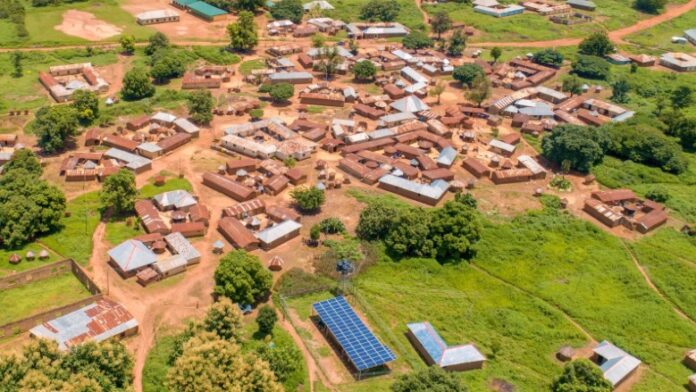Abuja sketches 10,000 mini grids for rural farmers to boost agriculture
By Jeph Ajobaju, Chief Copy Editor
Abuja has launched a scheme to establish 10,000 mini grids that will provide electricity for rural farmers by 2030 to both raise their living standards and ensure greater agricultural production for national food security.
Energising Agriculture Programme (EAP) is anchored by the Rural Electrification Agency (REA) with the support of Rocky Mountain Institute and the Global Energy Alliance for People and Planet.
EAP aims to accelerate the deployment of energy-agriculture solutions to farmers.
REA Managing Director Salihijo Ahmad enthused at the launch in Abuja that the scheme will unlock opportunities in agriculture by developing projects that will accelerate the productive use of electricity in rural communities.
He disclosed that the REA has in the past one year developed a unique relationship with the Rocky Mountain Institute to fashion the concept for the EAP.
“We ventured into the Energy-Agriculture space to create a nexus that allows us to utilise the key activity in rural communities to improve the productive use of electricity, which includes agricultural activities.
“The key priority for the REA is to ensure that the solutions we deploy in rural communities have both social and economic impacts on the lives of the people in those communities. Therefore, ensuring that electricity is used productively is a major priority for the REA,” he said.
Presidential Agriculture Assistant Andrew Kwasari stressed that power supply is important to boosting agricultural production in rural communities.
He said data shows that “power is important to rural economies not just because it lights up the homes, but also it solves the problem that is driving the contributions of rural smallholders’ agriculture to climate change, deforestation as source of power to either process local produce.
“Basically, if we can substitute this with off-grid solutions or what REA is proposing then a huge progress would have been made.”
______________________________________________________________
Related articles:
Abuja signs deal on 5.4kw solar power for 27K homes
Nigerians paying $40m monthly for electricity not supplied
Private power generators cost Nigerians N12tr yearly
________________________________________________________________
Nigeria tops league of lack of power supply
The federal government has also solicited the support of state governments to boost access to off-grid power by rural communities, a point made by Power Minister of State Goddy Jedy-Agba at a stakeholders’ workshop in Abuja.
His appeal came shortly Gail Warrander, Team Leader for Economic Development (UK FCDO) disclosed that there are more people in Nigeria without access to electricity than in any other country in the world.
She urged Abuja to address value added tax (VAT) and import duties on power equipment to help develop the power sector.
She stressed the need to raise income levels and also bridge the technology gap in the electricity sector.
Electricity is key to economic growth
Jeddy-Agba disagreed that Nigeria has the most population without electricity supply, insisting that the REA has done a lot to bring off-grid power to rural dwellers, according to reporting by Vanguard.
His words: “Recent events have shown the need to focus on deploying more off-grid solutions to complement the efforts of the federal government in ensuring that there is a reliable supply of electricity nationwide.
“To have nationwide access to electricity we have to focus on both enhancing the national grid and the off-grid solutions. To grow an economy, stable electricity is a key factor which cannot be over emphasised.
“The federal government has equipped agencies such as the REA with the tools it needs to contribute its quota into ensuring all Nigerians have access to electricity.
“This workshop showcases our goal of building a good relationship between the federal government and all the states, therefore I encourage the REA and state governments to go further and jointly design and support programmes that will boost the social and economic lives of people in rural communities.”




